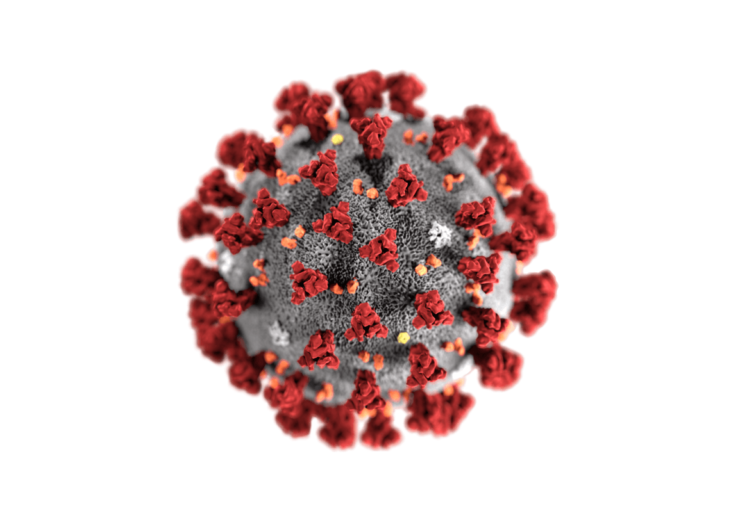The virus has been named SARS-CoV2 and the disease caused by the virus has been named ‘Coronavirus Disease 2019’ or COVID-19

The Centres for Disease Control and Prevention (CDC) illustration of SARS-CoV-2. (Credit: Wikipedia/CDC/ Alissa Eckert, MS; Dan Higgins, MAM)
The US Food and Drug Administration has issued a new policy for certain laboratories, seeking to develop diagnostic tests for coronavirus, to facilitate rapid testing capacity in the US.
The recent outbreak of respiratory disease caused by a novel coronavirus, originated in Wuhan City, Hubei Province, China and has been detected in 50 locations across the world, including cases in the US.
The virus has been named SARS-CoV2 and the disease caused by the virus has been named ‘Coronavirus Disease 2019’ or COVID-19.
SARS-CoV-2 has become a potential public health threat with the rapid spread of the COVID-19. The virus has significantly impacted the health care systems and led societal disruption.
The availability of testing capabilities in health care settings is crucial for rapid detection of cases, appropriate clinical management and infection control, to address the COVID-19 outbreak, said the US agency.
FDA Commissioner Stephen M Hahn said: “We believe this policy strikes the right balance during this public health emergency. We will continue to help to ensure sound science prior to clinical testing and follow-up with the critical independent review from the FDA, while quickly expanding testing capabilities in the US.
“We are not changing our standards for issuing Emergency Use Authorizations. This action today reflects our public health commitment to addressing critical public health needs and rapidly responding and adapting to this dynamic and evolving situation.”
HHS determined that COVID-19 is a public health emergency
FDA said that its new policy is aimed at certain laboratories, which develop and use validated COVID-19 diagnostics, prior to the agency’s review of their emergency use authorization (EUA) requests.
EUA will permit the use of certain medical products for diagnosis, treatment or prevention of a disease, based on scientific data. The EUA is issued only when the Secretary of Health and Human Services (HHS) realise a public health emergency, which may affect the health and security of citizens.
FDA said that the secretary of HHS, on 4 February 2020, has determined that there is a public health emergency, justifying the authorisation of emergency use of in vitro diagnostics for detection and diagnosis of the COVID-19 outbreak.
FDA Centre for Devices and Radiological Health director Jeff Shuren said: “Under this policy, we expect certain laboratories who develop validated tests for coronavirus would begin using them right away prior to FDA review.
“We believe this action will support laboratories across the country working on this urgent public health situation. We are dedicating all available resources to expediting the review of medical products, including diagnostics, to prevent the spread of this outbreak.”
FDA guidance recommends developers to validate the diagnostic tests they developed
As rapid detection of COVID-19 cases needs diagnostic testing tools, the FDA has authorised one EUA for COVID-19 for use in the US Centres for Disease Control and Prevention (CDC) and other public health labs in the country.
FDA said that its guidance will provide recommendations for test developers, information regarding test validation, along with notification and interim confirmatory clinical testing.
After the tests are validated, laboratories should contact the FDA, through email, to notify the same, and should submit a completed EUA request within 15 business days of notification.
